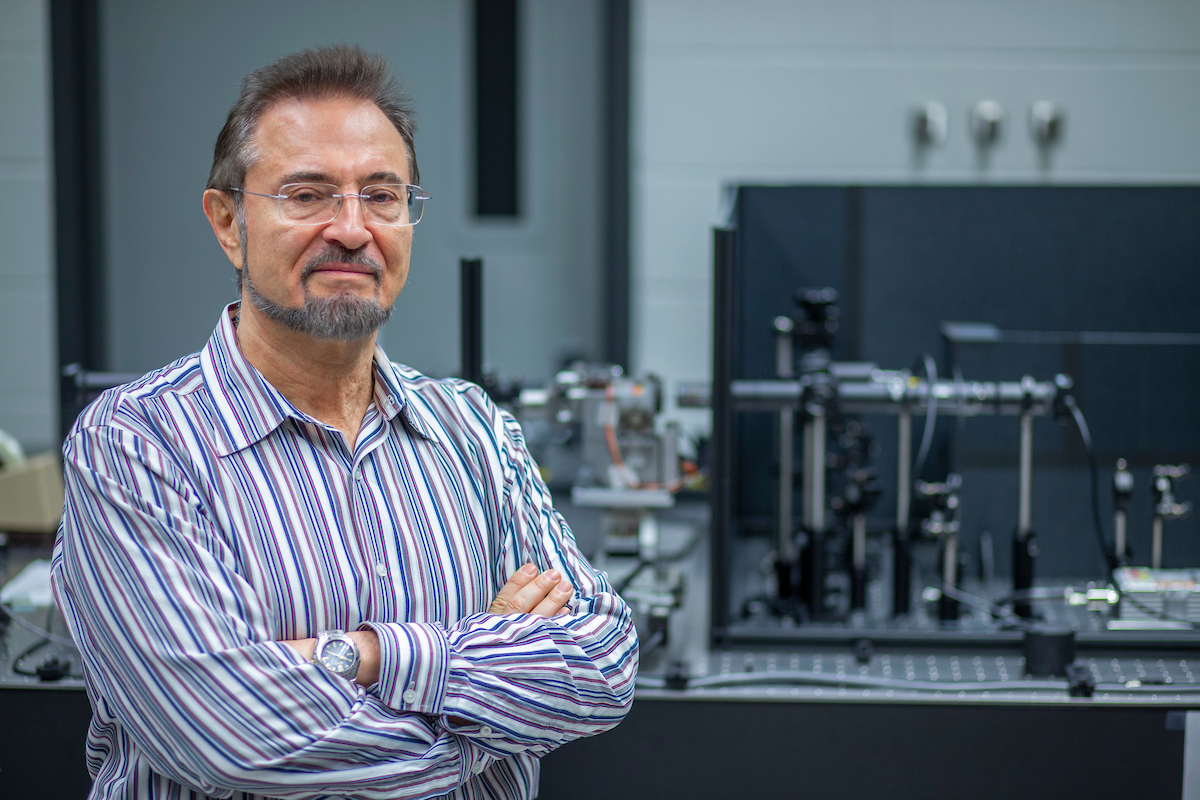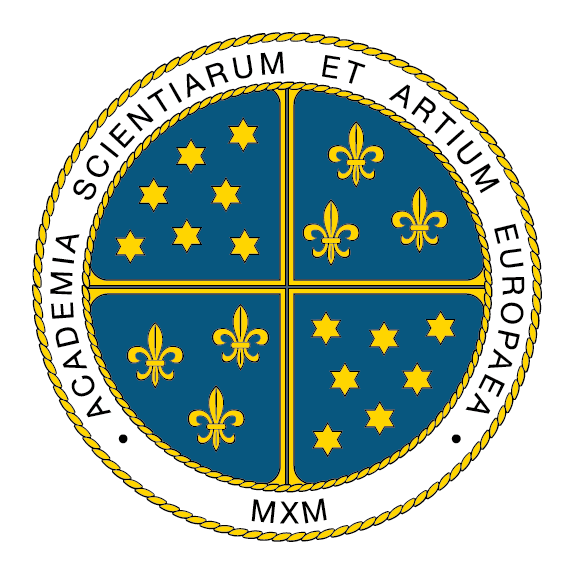
Valery Levitas has an instrument in his Howe Hall laboratory that squeezes bits of material between two diamonds and then gives it a twist. Larger photo. Photo by Photo by Christopher Gannon.
AMES, Iowa – The European Academy of Sciences and Arts recently elected Valery Levitas of Iowa State University to membership in its Technical and Environmental Sciences division.
Levitas, an Iowa State Anson Marston Distinguished Professor in Engineering and the Murray Harpole Chair in Engineering, is a member of the aerospace engineering department with a partial appointment in mechanical engineering. His research includes studying materials as they’re subject to severe plastic deformations under high pressures. That can produce new and useful basic science and material properties for industrial use.
The European Academy is an international, non-profit based in Salzburg, Austria. It has more than 2,000 members, including 32 Nobel Prize winners. Part of its mission is to “develop a culture of collaboration and building bridges” and to “promote “transnational/interdisciplinary research and produce significant outputs.”
“I was very happy to learn of this honor,” Levitas said. “This is great recognition, and I’m told it is a very selective process, especially for people who aren’t based in Europe.”
Though he’s been based in the United States for about 25 years, Levitas has extensive ties to Europe and European science.
He’s a native of Kyiv, Ukraine, and has degrees from universities in Kyiv, Moscow and Hannover, Germany. He was a lead researcher at the Institute for Superhard Materials of the Ukrainian Academy of Sciences in Kyiv and a researcher and visiting professor at the University of Hannover in Germany.
Levitas moved to the United States in 1999 as a faculty member at Texas Tech University. He joined Iowa State in 2008, where he has been affiliated with the departments of aerospace engineering, mechanical engineering and materials science and engineering. He’s also been a faculty scientist at the U.S. Department of Energy’s Ames National Laboratory.
He’s considered a founder of a research field called theoretical high-pressure mechanochemistry. It’s an important field because extreme conditions, such as high pressure and severe plastic deformations, can change materials, including their microstructures and their physical, chemical and electronic properties. Those new properties could be useful in new technologies or applications.
Levitas’ experimental work involves a unique instrument he brought to the United States that squeezes bits of material between two diamonds and then gives it a twist. That twist creates “completely different types of behavior, completely different types of phase transformations.”
“My main interest is to understand what’s going on under these high pressures and severe plastic deformations,” he said. “We want to find new laws which govern this field.”
Levitas and other new members will be formally inaugurated into the European Academy of Sciences and Arts during ceremonies April 5 and 6 at the University of Salzburg. He’ll have the opportunity to join experts groups, attend the academy’s annual meeting and participate in other scientific conferences.
The academy says he’ll be part of a membership of “leading scientists, artists, and business experts, who are dedicated to innovative research, interdisciplinary collaboration as well as the exchange and dissemination of knowledge.”
